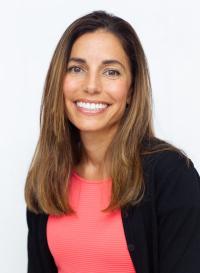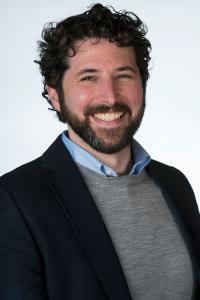
What Science Says About Longevity and How to Add Years to Your Life
Whether drinking from mythical springs of the Fountain of Youth or feeding on human blood as a vampire, cheating aging and death has long been the subject of fairytales. While immortality is still an impossibility, recent years have seen dramatic progress in the science of aging and adding healthy years to our lives, said Nobel Laureate Venki Ramakrishnan in a recent distinguished lecture presented by the Robert N. Butler Columbia Aging Center at Columbia Mailman School.
In his lecture, Ramakrishnan, a molecular biologist and group leader at the Medical Research Council Laboratory of Molecular Biology on the Cambridge Biomedical Campus in the U.K., built on themes in his latest book, Why We Die: The New Science of Aging and the Quest for Immortality. The talk gave the packed audience a fascinating tour of the latest science of aging, including how to define and measure aging, as well as potential ways to slow or even reverse its course. The lecture was co-sponsored by the Columbia Aging Center and the Vagelos Institute for Biomedical Education (VIBRE); it also served as a launch event for the aging center’s forthcoming virtual lecture series, “AI+ Healthy Longevity.”
In introductory remarks, Hashim M. Al-Hashimi, Associate Dean for Biomedical Graduate Education, pointed to Ramakrishnan’s extraordinary scientific contributions, including his work on the structure and function of ribosomes which was recognized with a Nobel Prize in Chemistry in 2009, shared with Thomas A. Steitz and Ada Yonath. Ramakrishnan’s career “exemplifies the power of curiosity and discovery across disciplines,” Al-Hashimi said. In her own introduction, Allison E. Aiello, James S. Jackson Healthy Longevity Professor of Epidemiology and interim director of the Columbia Aging Center, said the speaker’s new book “brings the same molecular precision that once unlocked the ribosome to one of life’s most universal questions, why aging exists at all.”
Is Aging a Disease?
In his lecture, Ramakrishnan said the explosion of aging research in academia is largely driven by concerns over population aging, the demographic trend in which older people are outnumbering young people. Private industry, too, including approximately 700 startups like Calico and Altos Labs, are investing billions in research to intervene on aging. “There’s been a lot of money and interest in aging research, and that’s resulted in some real advances in the last 40 years or so,” he said. Much anti-aging research approaches aging as a disease in need of a cure. While it’s true that aging is correlated with disease, young people get sick too, and everyone ages. “Aging is not a disease in the classical sense of how you define a disease as something abnormal,” Ramakrishnan said.
How Old Am I, Really?
The number of birthdays each of us has celebrated usually isn’t the same as our biological age or how close we are to our final year. Science offers many definitions of biological aging, but Ramakrishnan said he understands it to be an “accumulation of changes and damage that leads to increased dysfunction over time.” Because we all age at different rates—he joked that this is obvious anytime you go to a high school reunion—researchers have developed sophisticated methods like epigenetic markers to measure our biological age, as opposed to our chronological age. These include DNA methylation measures like DunedinPACE, created by Columbia Mailman professor Daniel Belsky and collaborators to measure the pace of aging from the molecular process of DNA methylation. Ramakrishnan speculated that a combination of measures would likely be needed, and praised non-molecular indices which include assessments of physical capabilities like grip strength.
Is There a Limit to How Long Humans Can Live?
While a Greenland shark can live 400 years, the longest human life on record is Jeanne Calment, a French woman who lived to be 122 years old. She died in 1997 after a life of smoking cigarettes and drinking port. Thanks to advances in medicine and public health, people are living longer lives on average than they did in the 1990s, and there are more centenarians than ever before, yet so far, no one else has lived to be 120. Ultimately, our potential lifespan is determined by how we evolved as a species to pass along our genes, Ramakrishnan explained. “The number of supercentenarians, which are people who live to be over 110, is not growing. This suggests that somewhere around 110 is the natural limit of our species,” he said.
How Can We Slow Aging? Should We?
While no one seriously suggests cigarettes and port to extend life, many anti-aging therapeutics have proliferated with varying degrees of science to back them up. Anyone can buy a supplement on Amazon.com that purports to lengthen your telomeres. Yet while telomere shortening is a hallmark of aging, there is little evidence for the supplement’s effectiveness. Even if it did, taking it might be a bad idea because telomere loss protects against cancer. While still preliminary, comparatively more evidence exists for drugs like Metformin that partly mimic the effects of caloric restriction, known to boost longevity in mice. Other methods target the accumulation of inflammatory senescent cells, loss of metabolites, including antioxidants involved with physical activity, and loss of NAD+, a coenzyme involved in cellular metabolism, energy production, and DNA repair.
After Stanford researchers reported that older rats benefited from the infusion of blood from younger rats, Ramakrishnan said they were “inundated with somewhat creepy phone calls about where you could get young blood.” Tech entrepreneur Bryan Johnson conducted his own experiment, exchanging blood with his father and son, but found no benefits. Another intriguing potential therapeutic hinges on the idea of epigenetically reprogramming cells to revert them to a “youthful” state. In many cases, Ramakrishnan noted that the most exotic therapies will initially only be accessible the wealthy, further increasing disparities in lifespan between rich and poor.
While medicine has added years of life, these extra years are often lived in ill health. For now, the best evidence suggests three ways to live longer in good health: sleep, diet, and exercise. “All the molecular biology and cell biology we've learned in the last few decades clearly tell us that this trio is extremely beneficial,” Ramakrishnan concluded. Two other determining factors related to our place in the world: social connections and sense of purpose—both of which he said he thinks about for himself as he nears retirement.

